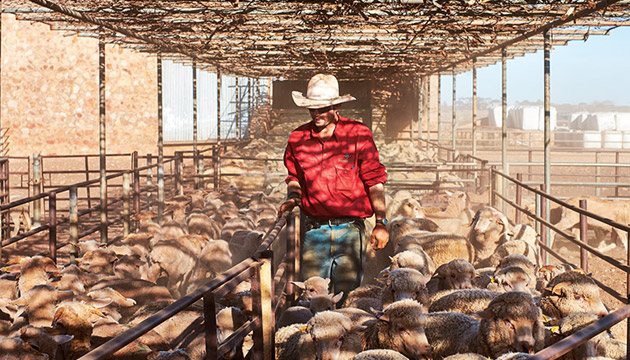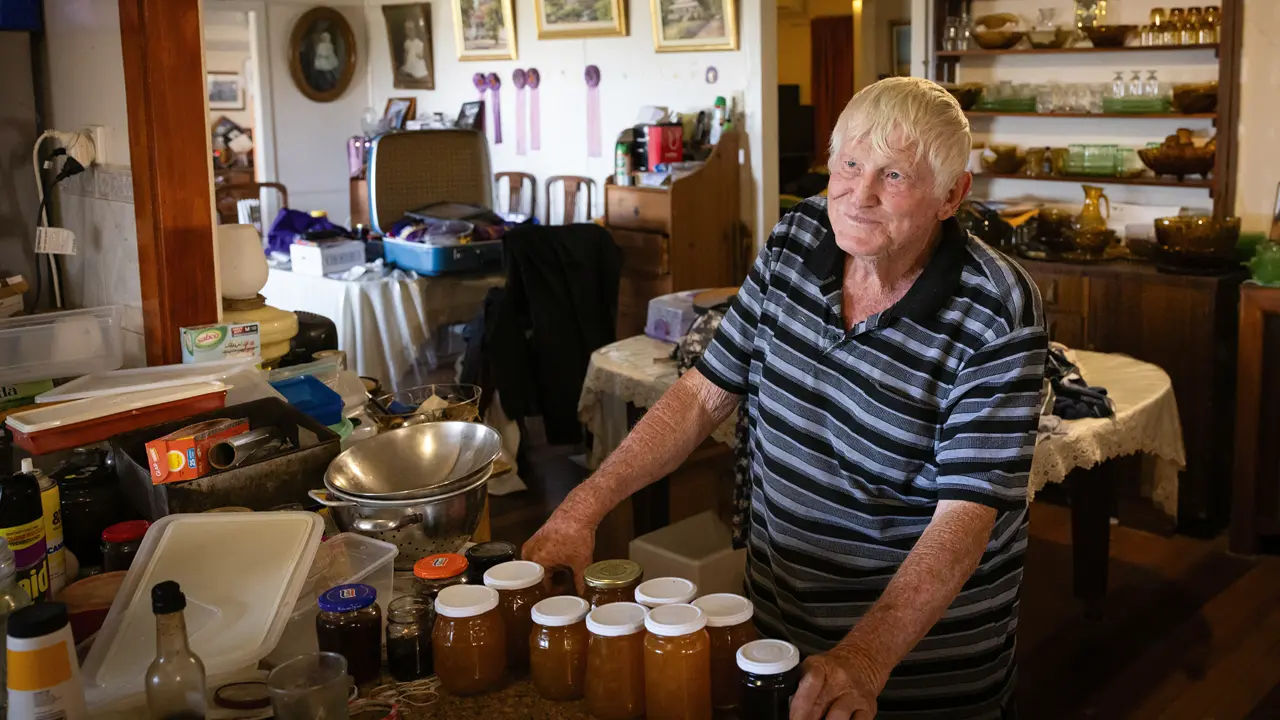Under the careful stewardship of Jumbuck Pastoral, Merino sheep thrive on vast, flat paddocks in the Woomera Prohibited Area of South Australia.
Story By Genevieve Barlow
In high summer on Commonwealth Hill Station, inflatable swimming pools are all the go. The station manager inflates one in his garden, so does the overseer and his wife, and the cook, modest Mary Blackmore. Mary, who’s inclined to ‘melt’ when the mercury hits 40 degrees Celsius, sets hers up on the verandah of her quarters. She stays submerged in her four square metres of salvation with Max, her Maltese-Shih tzu dog, afloat on a mat nearby until meal preparation time, when she’s been known to wrap herself in a towel and make the short trip across baking sands to the kitchen quarters next-door to work. “No-one feels the heat more than me,” Mary says. “But I find ways to make life work for me, hot or not. I like it here. I only leave the station when I have to. It’s peaceful, there’s no rush, no traffic lights and no shopping. I hate shopping.”
Located 505 kilometres north-west of Port Augusta and about an hour inland from the Stuart Highway, Commonwealth Hill is, in most people’s eyes, isolated. This is Woomera country. Formally designated rangelands, it’s also known as the Woomera Prohibited Area, home of the largest military testing ground in the Southern Hemisphere. Stations around these parts have earth-covered bomb shelters of reinforced steel. They also have 1950s warning sirens in their homesteads, from when the British test-fired rockets nearby. Last year, the tests were for unmanned British surveillance and strike drones. Here, within the 127,000 square kilometres the Australian Government declared prohibited in 1952 to test Air Force equipment, the MacLachlan family has run Commonwealth Hill Station for more than eight decades.
This Story is from Issue #98
Outback Magazine: Dec/Jan 2015










